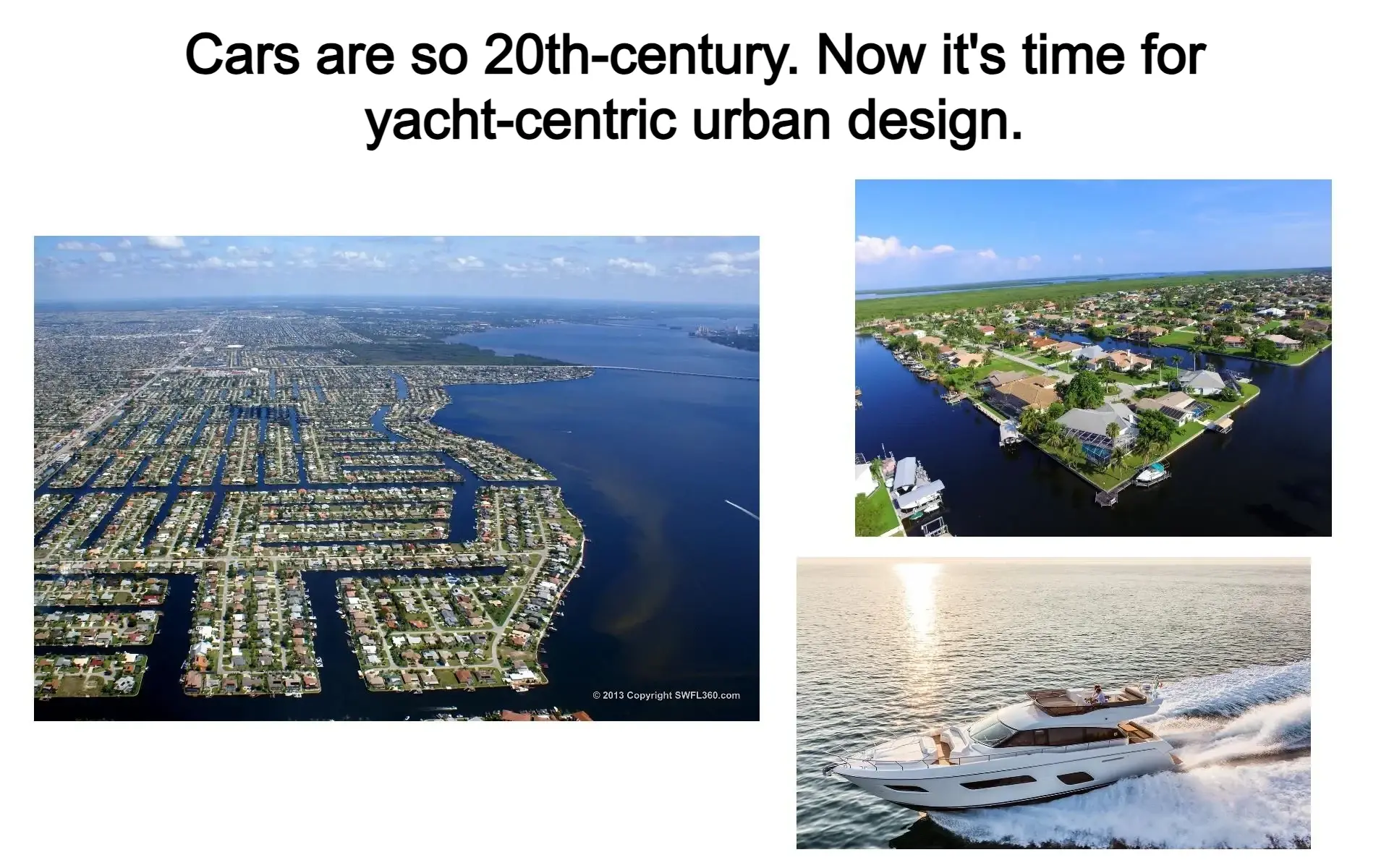Fuck Cars
A place to discuss problems of car centric infrastructure or how it hurts us all. Let's explore the bad world of Cars!
Rules
1. Be Civil
You may not agree on ideas, but please do not be needlessly rude or insulting to other people in this community.
2. No hate speech
Don't discriminate or disparage people on the basis of sex, gender, race, ethnicity, nationality, religion, or sexuality.
3. Don't harass people
Don't follow people you disagree with into multiple threads or into PMs to insult, disparage, or otherwise attack them. And certainly don't doxx any non-public figures.
4. Stay on topic
This community is about cars, their externalities in society, car-dependency, and solutions to these.
5. No reposts
Do not repost content that has already been posted in this community.
Moderator discretion will be used to judge reports with regard to the above rules.
Posting Guidelines
In the absence of a flair system on lemmy yet, let’s try to make it easier to scan through posts by type in here by using tags:
- [meta] for discussions/suggestions about this community itself
- [article] for news articles
- [blog] for any blog-style content
- [video] for video resources
- [academic] for academic studies and sources
- [discussion] for text post questions, rants, and/or discussions
- [meme] for memes
- [image] for any non-meme images
- [misc] for anything that doesn’t fall cleanly into any of the other categories
Recommended communities:
view the rest of the comments

I once wrote a semi-satirical short story for a writing contest about Norway in the future, and I haaaate how much I had to trim that story down for word count, because I had a ton of ideas for it. I was going to write at length about how rising sea levels and more frequent flooding due to extreme weather had encouraged a shift to canal-centric reconstruction of Norwegian cities. These canals were known to locals as "moats", because their primary purpose was not to facilitate transport, but rather to hinder it: traveling around cities now required either a fancy boat, or crossing one of a limited number of drawbridges, which frequently broke down for extended periods of time in poorer areas, and universally prioritized boat traffic over foot traffic.
The growing underclass of Norway still found some use for the canals, though, as they could fish for drift-litter in the contaminated waters, which they would use for crafts and gardening and such. Meanwhile in other areas, the canal water had been purified: the parks and plazas of Norway's cities had all been transformed into public swimming pools, leaving would-be protestors with virtually no choice but to don their favorite bikinis and swim-trunks while holding up water-proof signs.
This story is amazing. I personally thought about canal development in a more positive light, as cargo transport over seas is the most fuel efficient form of transport known to men, beats even trains. Rowing in boats is also fun! Also most landlocked countries are poorer and have less freedom, because they have 0 access to the open oceans to trade and flee opressors and neighbors.